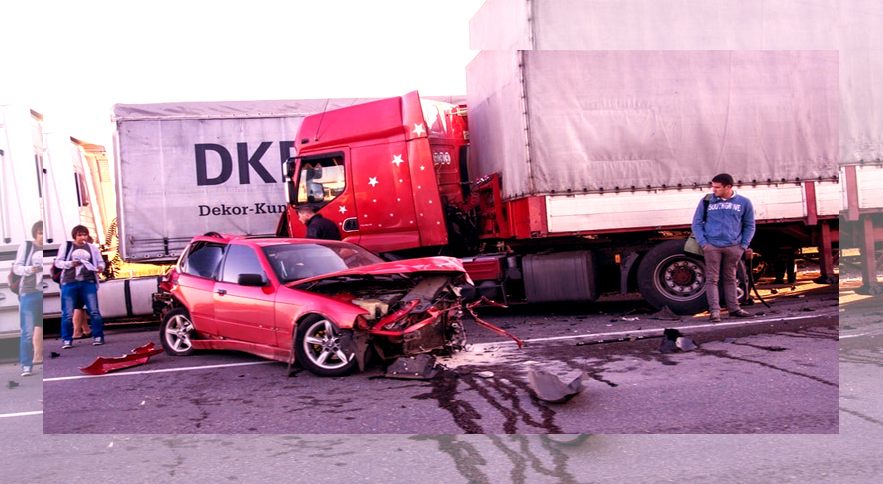Ad powered by hntgaming.me
A personal injury lawyer is a professional who helps people who have been injured in an accident or due to someone else’s negligence. In most cases, these lawyers work on a contingency basis, meaning they only get paid if they win the case. If you’ve been injured and are looking for a personal injury lawyer in Lakewood, Colorado, here are some things to keep in mind.
Ad powered by hntgaming.me
If you have been injured in an accident, you may be wondering if you need a personal injury lawyer. The answer depends on several factors, including the severity of your injuries, the circumstances of the accident, and whether or not you have insurance.
If your injuries are severe, you will probably need a lawyer to help you get compensation from the responsible party.
Even if your injuries are not severe, if the other driver was at fault, you may still want to consult with a lawyer to discuss your options. If you do not have insurance, or if your insurance does not cover accidents caused by someone else’s negligence, a personal injury lawyer can help you file a lawsuit to get the compensation you deserve.
Even if your injuries are not severe, if the other driver was at fault, you may still want to consult with a lawyer to discuss your options. If you do not have insurance, or if your insurance does not cover accidents caused by someone else’s negligence, a personal injury lawyer can help you file a lawsuit to get the compensation you deserve.
Ad powered by hntgaming.me
Injury Lawyer
If you have been injured in an accident, you may be wondering if you need to hire an injury lawyer. The answer to this question depends on many factors, including the severity of your injuries, the circumstances of your accident, and whether or not you are able to handle your own claim.
If you have suffered minor injuries and the accident was not your fault, you may be able to settle your claim without hiring a lawyer.
However, if your injuries are more serious or if the other party is contesting liability, it is probably in your best interest to hire an experienced injury lawyer. An experienced lawyer will know how to investigate your case, gather evidence, and negotiate with insurance companies on your behalf. The cost of hiring an injury lawyer will vary depending on the complexity of your case and the lawyer’s experience.
Most personal injury lawyers work on a contingency fee basis, which means they only get paid if they win your case. Contingency fees are typically a percentage of the total settlement amount, so you will only owe attorney’s fees if you win your case.
However, if your injuries are more serious or if the other party is contesting liability, it is probably in your best interest to hire an experienced injury lawyer. An experienced lawyer will know how to investigate your case, gather evidence, and negotiate with insurance companies on your behalf. The cost of hiring an injury lawyer will vary depending on the complexity of your case and the lawyer’s experience.
Most personal injury lawyers work on a contingency fee basis, which means they only get paid if they win your case. Contingency fees are typically a percentage of the total settlement amount, so you will only owe attorney’s fees if you win your case.
Ad powered by hntgaming.me
Work Injury Lawyer near Me
If you or someone you know has been injured at work, you may be wondering if you need a work injury lawyer. The answer to this question depends on the severity of the injury and whether or not your employer has workers’ compensation insurance. If your injury is minor and your employer has workers’ compensation insurance, you probably won’t need a lawyer.
However, if your injury is more serious, or if your employer does not have workers’ compensation insurance, you may need a lawyer to help you get the compensation you deserve. A work injury lawyer can help you file a claim for workers’ compensation benefits, which can include medical expenses and lost wages. If your employer does not have workers’ compensation insurance, a work injury lawyer can also help you file a personal injury lawsuit against your employer.
Whether you need a lawyer will depend on the facts of your case and on the laws in your state.
However, if your injury is more serious, or if your employer does not have workers’ compensation insurance, you may need a lawyer to help you get the compensation you deserve. A work injury lawyer can help you file a claim for workers’ compensation benefits, which can include medical expenses and lost wages. If your employer does not have workers’ compensation insurance, a work injury lawyer can also help you file a personal injury lawsuit against your employer.
Whether you need a lawyer will depend on the facts of your case and on the laws in your state.
Accident Lawyer near Me
If you or a loved one has been seriously injured in an accident, you need an experienced personal injury lawyer on your side. The Law Offices of James Scott Farrin is here to help. We have more than 100 years of experience fighting for the rights of injury victims, and we’re ready to put that experience to work for you.
We know how insurance companies operate, and we’ll fight to get you the full compensation you deserve. We’re not afraid to take your case to trial if that’s what it takes to get justice for you. Contact us today for a free initial consultation.
We have offices throughout North Carolina, and we’re ready to help you no matter where you are located.
We know how insurance companies operate, and we’ll fight to get you the full compensation you deserve. We’re not afraid to take your case to trial if that’s what it takes to get justice for you. Contact us today for a free initial consultation.
We have offices throughout North Carolina, and we’re ready to help you no matter where you are located.
Ad powered by hntgaming.me
What Do Personal Injury Lawyers Do?
Personal injury lawyers help their clients receive compensation for the damages caused by another party’s negligence. In most cases, these lawyers work on a contingency basis, meaning they only get paid if their client wins the case.
Most personal injury claims are based on the legal theory of negligence.
To win a negligence claim, the plaintiff must prove that the defendant owed them a duty of care, breached that duty, and caused them an injury. For example, drivers owe other motorists a duty to drive safely. If they breach that duty by driving recklessly and cause an accident, they can be held liable for any resulting injuries.
In some cases, however, plaintiffs can also base their claims on strict liability or intentional tort theories. With strict liability, defendants can be held liable for injuries even if they did not do anything wrong – as long as the plaintiff was injured while using the product as intended. Intentional torts occur when defendants intentionally harm plaintiffs (e.g., assault and battery).
To win a negligence claim, the plaintiff must prove that the defendant owed them a duty of care, breached that duty, and caused them an injury. For example, drivers owe other motorists a duty to drive safely. If they breach that duty by driving recklessly and cause an accident, they can be held liable for any resulting injuries.
In some cases, however, plaintiffs can also base their claims on strict liability or intentional tort theories. With strict liability, defendants can be held liable for injuries even if they did not do anything wrong – as long as the plaintiff was injured while using the product as intended. Intentional torts occur when defendants intentionally harm plaintiffs (e.g., assault and battery).
What is Breach of Duty?
A breach of duty is a legal term that refers to the violation of a contractual obligation or a promise made in order to induce someone else to rely on it. It is also used to describe the failure to meet a common law standard of care, such as when a professional neglects to provide adequate care and this results in harm.
What is Negligence in Law?
Negligence in law is defined as a failure to exercise the required degree of care towards another person, which results in injury or damage. It can also be described as acting in a way that creates an unreasonable risk of harm to others. There are four elements that must be present for negligence to occur: duty of care, breach of duty, causation and damages.
Duty of care is the legal obligation to take reasonable steps to avoid causing injury or damage to another person. This means taking precautions to protect against foreseeable risks. For example, all drivers have a duty of care to other road users and must take reasonable steps to avoid accidents, such as driving within the speed limit and not under the influence of drugs or alcohol.
Breach of duty occurs when someone fails to meet the standard of care expected of them. For example, if a driver speeds and causes an accident, they have breached their duty of care. Causal link – In order for negligence to be established, there must be a causal link between the breach of duty and the resulting damage or injury.
This means that but for the defendant’s actions, the claimant would not have suffered any loss. For example, if a driver runs a red light and hits another car causing damage, there is a clear causal link between their actions and the resulting accident. However, if both cars had been damaged in an unrelated incident earlier that day, then there would be no causal link between the defendant’s actions and the claimant’s losses.
Damage or Injury – The final element required for negligence is damage or injury caused by the breach of duty .
Duty of care is the legal obligation to take reasonable steps to avoid causing injury or damage to another person. This means taking precautions to protect against foreseeable risks. For example, all drivers have a duty of care to other road users and must take reasonable steps to avoid accidents, such as driving within the speed limit and not under the influence of drugs or alcohol.
Breach of duty occurs when someone fails to meet the standard of care expected of them. For example, if a driver speeds and causes an accident, they have breached their duty of care. Causal link – In order for negligence to be established, there must be a causal link between the breach of duty and the resulting damage or injury.
This means that but for the defendant’s actions, the claimant would not have suffered any loss. For example, if a driver runs a red light and hits another car causing damage, there is a clear causal link between their actions and the resulting accident. However, if both cars had been damaged in an unrelated incident earlier that day, then there would be no causal link between the defendant’s actions and the claimant’s losses.
Damage or Injury – The final element required for negligence is damage or injury caused by the breach of duty .
Conclusion
If you’ve been injured in an accident, you may be wondering if you need a personal injury lawyer. The answer depends on many factors, including the severity of your injuries, the circumstances of the accident, and whether you have insurance.
If your injuries are serious and require ongoing medical treatment, or if you’re facing a lot of financial losses because of the accident, then it’s probably worth hiring a personal injury lawyer.
A good lawyer will help you get the compensation you deserve from the responsible party. Lakewood is home to many experienced and reputable personal injury lawyers who can help with your case. If you’re not sure whether to hire a lawyer, we suggest scheduling a free consultation so that you can learn more about your legal rights and options.
A good lawyer will help you get the compensation you deserve from the responsible party. Lakewood is home to many experienced and reputable personal injury lawyers who can help with your case. If you’re not sure whether to hire a lawyer, we suggest scheduling a free consultation so that you can learn more about your legal rights and options.






